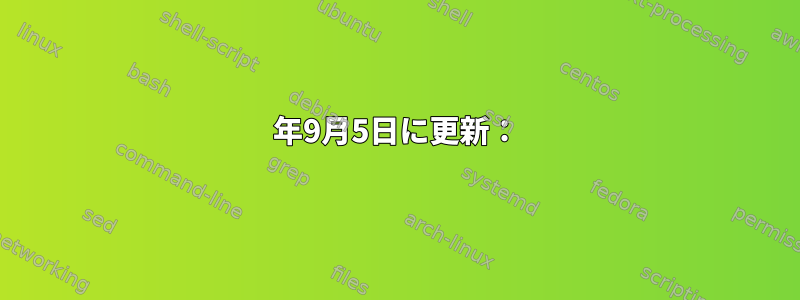
私の関連投稿数年前、私は誤ってbashレコードに保存されている「危険な」コマンドを実行しないようにコメントアウトする方法の解決策を見つけました。
で同じものを実装するための最良の解決策は何ですかzsh?
zshこの目的に使用できる機能は提供されますか?私の考えでは、zshbeiengはより柔軟で簡単になると思いますzsh。
ちなみに、これは私が使ったものですbash(Stéphane Chazelasの答えに基づいています)。
fixhist() {
local cmd time histnum
cmd=$(HISTTIMEFORMAT='<%s>' history 1)
histnum=$((${cmd%%[<*]*}))
time=${cmd%%>*}
time=${time#*<}
cmd=${cmd#*>}
case $cmd in
(cp\ *|mv\ *|rm\ *|cat\ *\>*|pv\ *|dd\ *)
history -d "$histnum" # delete
history -a
[ -f "$HISTFILE" ] && printf '#%s\n' "$time" " $cmd" >> "$HISTFILE";;
(*)
history -a
esac
history -c
history -r
}
2022年9月5日に更新:
許容される解決策は有効ですが、予期しない副作用があります。insert-last-wordキーバインディングを混乱させます。簡単な説明は次のとおりです。
私は「危険」コマンドの1つを使用します。
rm zz
(必要に応じて)説明とともにレコードに追加されました。
history
...
# rm zz
履歴に別のコマンドを追加してみましょう。
echo foo
Altここで、+を使用して履歴を繰り返しようとすると、.次のような結果が得られます。
echo <Alt> + .
foo
history
# rm zz
提案を受け取るのではなく、zzコメント全体を提案しました# rm zz。
この問題をどのように解決できますか?
答え1
もちろん、zshaddhistoryフック機能を使用して通常の記録処理を無効にしてください。
function zshaddhistory() {
# defang naughty commands; the entire history entry is in $1
if [[ $1 =~ "cp\ *|mv\ *|rm\ *|cat\ *\>|pv\ *|dd\ *" ]]; then
1="# $1"
fi
# write to usual history location
print -sr -- ${1%%$'\n'}
# do not save the history line. if you have a chain of zshaddhistory
# hook functions, this may be more complicated to manage, depending
# on what those other hooks do (man zshall | less -p zshaddhistory)
return 1
}
zsh 5.0.8でテスト済み
% exec zsh
% echo good
good
% echo bad; rm /etc
bad
rm: /etc: Operation not permitted
% history | tail -4
299 exec zsh
300 echo good
301 # echo bad; rm /etc
302 history | tail -4
%
extendedhistoryこれはオプションセットにも当てはまるようです。
答え2
次の機能は、変更されたスライグの機能に基づいていますhistignorespace。
function zshaddhistory() {
if [[ $1 =~ "^ " ]]; then
return 0
elif [[ $1 =~ "cp\ *|mv\ *|rm\ *|cat\ *\>|pv\ *|dd\ *" ]]; then
1="# $1"
fi
# write to usual history location
print -sr -- ${1%%$'\n'}
# do not save the history line. if you have a chain of zshaddhistory
# hook functions, this may be more complicated to manage, depending
# on what those other hooks do (man zshall | less -p zshaddhistory)
return 1
}


